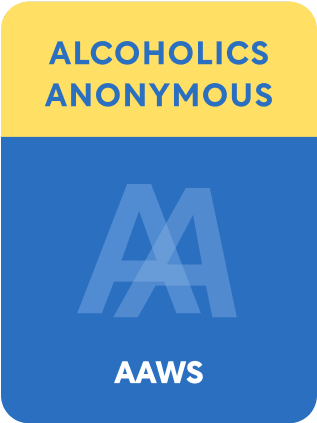

This article is an excerpt from the Shortform summary of "Alcoholics Anonymous: The Big Book" by AAWS. Shortform has the world's best summaries of books you should be reading.
Like this article? Sign up for a free trial here .
What is Alcoholics Anonymous? Does it work and what are its drawbacks?
Alcoholics Anonymous is a widely used program for addressing alcohol addiction. Its 12-step program is now used for other addictions as well.
So, what is Alcoholics Anonymous? Read on to find out what it is, how it works, and some concerns about it.
What Is Alcoholics Anonymous?
The Big Book is Alcoholics Anonymous’s primary text. (Its long title: Alcoholics Anonymous: The Story of How Many Thousands of Men and Women Have Recovered from Alcoholism). The Big Book is one of the best-selling books of all time (30 million copies sold). It originated the “twelve-step program” now used widely among addictions outside alcohol. During a time when alcoholism was seen primarily as a character defect (and not, say, genetically determined), the Big Book showed alcoholism as an illness, rather than a character defect.
What is AA? Are there major components to the program? In sum, the Alcoholics Anonymous intervention consists of these major actions:
- Recognize that total abstinence is the only way to get over alcoholism. When alcoholics start drinking, they develop an insatiable craving for more alcohol. The only way is to stop completely; moderation doesn’t work.
- Believe in a higher power than yourself. This doesn’t necessarily mean a religious god. You simply need to recognize that you’re too weak to solve the problem yourself, and that something larger than yourself will give you additional strength.
- Conduct a moral inventory of yourself. Recognize your flaws and emotions that cause you to fail around alcohol. This will help you find what makes you drink; removing these flaws will free yourself from drinking. Confess these personality defects.
- Make amends with people you’ve hurt in the past. Be sincere about righting your past wrongs.
- Be helpful to others. Help other alcoholics recover.
So, what is Alcoholics Anonymous? Is it problematic in any way? AA is controversial for its unclear (and sometimes embellished) efficacy, as well as outsiders’ perception of its practices.
What Is Alcoholics Anonymous? A Cult?
There’s plenty of criticism of AA as operating like a cult. From our reading of the Big Book, AA’s principles seem relatively benign. The idealized version of an AA group seems to be secular and accepting of a diverse range of people.
The commonly known requirement of “belief in a higher power” bothers people who believe medical treatment should be secular. The Big Book makes pretty clear this does not require the Christian conception of God. An AA member puts it in a secular framing: “It’s not just a God, or a spiritual power, but the fact that you’re just a singular being that can’t, in your own, resolve this. Even a group of friends and family, something inarguably larger than yourself, is enough.”
It’s possible that AA’s decentralized, autonomous design has caused some member groups to be run in a polarizing way. It’s not hard to imagine that some AA groups are more rigid, religious or Christian, or predatory. And since AA was started in the US in the 1940s, there are traditions such as prayers that probably started out Christian-influenced that have to be explained away. So, what is Alcoholics Anonymous? Is it a cult? It doesn’t look like it, but some local groups may be problematic.
Is the AA Program Effective?
The evidence that Alcoholics Anonymous works any better than other treatments (like psychotherapy or interventions with medical staff) is mixed. It’s clear that AA works better than nothing, but it’s unclear that it works significantly better than other interventions. Here’s a useful writeup of the research literature.
Part of the problem with studying AA is tied to how it’s run. What is Alcoholics Anonymous and how is it run? AA is anonymous, so tracking patients is harder. Also, AA is run by independent groups, so there’s less standardization of how the groups are run. Furthermore, many studies study a “twelve-step program” run by therapists, but these are different from formal AA meetings that are run by AA members.
So, what is Alcoholics Anonymous? Is it effective or not? Here’s a reasonable, if vague, interpretation:
- AA works very well for some alcoholics, and not at all for others. It’s not a magical slam dunk for everyone (or else the alcoholism rate would be far lower than it is).
- AA is popular by member count, and the model is scalable and free (to both patients and the medical system).
The problem of addiction is hard enough that it’s good to have a variety of treatment options, and for patients to try a bunch out and choose the one that works for them.

———End of Preview———
Like what you just read? Read the rest of the world's best summary of AAWS's "Alcoholics Anonymous: The Big Book" at Shortform .
Here's what you'll find in our full Alcoholics Anonymous: The Big Book summary :
- How alcoholism is a nearly insurmountable disease that non-alcoholics can't understand
- The key 12 steps of the program, and why they work
- Why Alcoholics Anonymous isn't a cult and why it works






